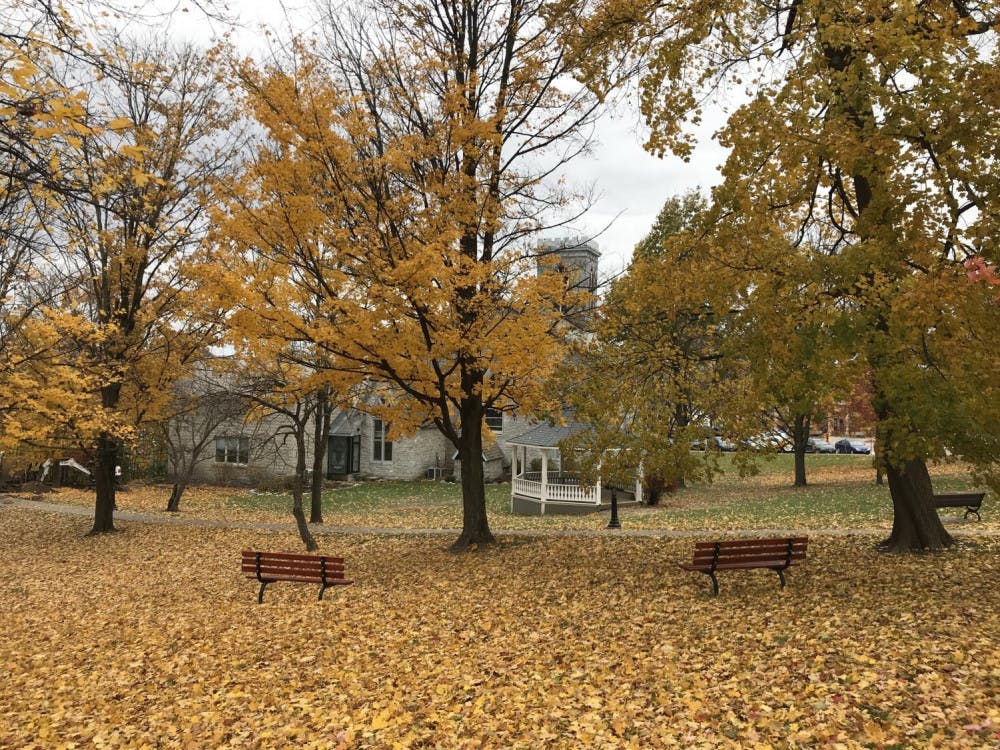As students returned last month to a new semester in disparate capacities, 85 have chosen to live off campus in the town of Middlebury. Facing increased surveillance and most of the same restrictions as other students, some say that life off campus, at least during Phase One, is more stressful.
During the summer months, students were mindful of respecting and protecting the Middlebury community while retaining a sense of normalcy in their ability to leave their homes and visit both town and the surrounding areas, according to Chris Gernon ’21.
“I would work from nine to four and then would go to a swimming hole or to Lake Dunmore,” said Van Lundsgaard ’21, who moved back to Middlebury in June.
Conditions changed, however, in late August, when the college followed through on its decision to welcome back its full student body — excluding those who chose to pursue a fully online experience — to campus.
Gernon and Lundsgaard live in a house on Weybridge Street, along with three other seniors and two senior febs. Like the rest of the off-campus students, they are only able to travel to and from campus. No guests, whether from the community or campus itself, are allowed in their home.
Since they aren’t on the meal plan and are not allowed to visit grocery stores, stocking up on groceries was an essential part of preparations for the college’s reopening. Delivery services have become a necessity as well — many of the town’s most popular restaurants offer meal deliveries, and Instacart, an online grocery-ordering service, has quickly gained popularity.
While on-campus students must adhere to a strict set of guidelines, their off-campus counterparts face a reality of rules that are equally unyielding. “For the most part, it feels like we are living in a normal house until we leave the house,” Lundsgaard said.
In fact, life might be more stressful as off-campus students, with “not getting in trouble with the college,” as Gernon puts it, becoming a large component of their respective experiences.
Some feel that the college is policing off-campus students more harshly and to a greater extent than the on-campus students. “The college seems to be more concerned with optics than actual health protocols,” Lundsgaard said.
Students living off campus are subject to the eye of the public, or at least the community of Middlebury and the greater Addison County. College administrators regularly patrol the off-campus housing areas, even stopping by to check on individual living spaces. While this security detail is “very nice,” it can sometimes become overwhelming, Lundsgaard said.
“[Students] have seen in-town community members be accosted by security guards,” he continued. These guards demand to know where each person is going, inquiring after their adherence to campus quarantine, Lundsgaard said.
But while off-campus college life has been drastically impacted by Covid-19 and subsequent college-issued restrictions, students remain focused on the positive aspects of their current experience.
“Thanks to my friends’ enthusiasm and positive attitudes, I have not minded hanging out six feet [apart] or being ‘stuck’ with my roommates at home,” Emily Allardi ’21 said. Allardi lives on Cross Street, near the small roundabout in town.
The realities of this semester have deviated from her expectations as well. She imagined that wearing a mask and “being safe” would be the only restrictions on her life, and that, come fall, she would still be able to go to the grocery store and exercise outside in town.
But the unexpectedly limiting protocols enforced in the last few weeks have inspired her to “[take] full advantage of [the college’s] beautiful campus.” She has run the TAM trail for the first time and enjoys visiting the organic garden and taking in the views.
In terms of outlook for the future, off-campus students are hopeful. The college announced on Monday that the transition into Phase Two will take place on Thursday, Sept. 17, meaning students residing both on and off campus will be allowed to leave campus then. However, students are still not permitted to visit off-campus residences.
“I think [the plan] is effective and the best way to make sure the town is safe,” Lundsgaard said.
Gernon agreed, saying that, “gradually lifting restrictions seems like the best way to ensure everyone is safe while following the rules.”
Independence with caveats: Students explore off-campus living during Covid-19

Comments



